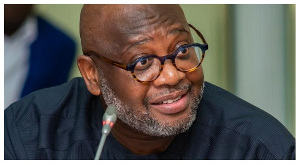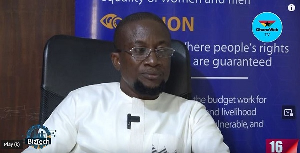The University of Ghana on Friday, signed a landmark agreement with Africa Integras, an international investment Agency for the improvement of infrastructure.
The agreement, which involves a 64 million-dollar project, is structured as a 25-year Build, Operate and Transfer (BOT), and the first of its kind with a public university in Africa.
The BOT agreement was signed by Professor Ernest Aryeetey, Vice Chancellor of the University of Ghana, on behalf of the University, while Ms Andrea Pizziconi, Managing Partner of Africa Integras, initialed for her Organization.
Prof. Aryeetey confirmed that the University had just received final funding approvals to proceed on its anticipated Public-Private Partnership investment with Africa Integras, to construct four new academic buildings.
He explained that the projects involved the construction of an expanded facility for the College of Humanities, a new College of Education.
There would also be the construction of a new dedicated facility for the College of Basic and Applied Sciences and the Institute of Technology and Applied Sciences, as well as new facility for the College of Health Sciences to be located near the new Teaching Hospital on campus, he said.
He said the project would also involve the procurement of thousand new students’ hostel beds, to be divided between undergraduate and graduate students mostly to serve the College of Health Sciences.
Construction, he said, was expected to start from Septemper, with a completion date targeted for September 2017.
The Vice-Chancellor explained that the project, which was originally signed in July, 2014, but had now reached the material milestone of funding approvals, represented the largest single expansion of infrastructure at the University of Ghana in its 66-year history.
“This project will finally allow us to realize our long-term vision to create capacity to welcome more graduate and PhD students within Ghana and from across the continent, by providing modern, world class teaching and research facilities to support them”.
Prof. Aryeetey said the project would also allow the University to alleviate internal congestion in the use of existing facilities, such that it could expand its undergraduate population, as well as welcome more distance learning students.
The overall social impact of the project on Ghana’s long-term economic development could not be understated, he said.
He said it was projected that over the course of the BOT period alone, tens of thousands of additional teachers, doctors, lawyers, engineers and other critical skills professions, both at the undergraduate and graduate level, would be trained as a direct result of the expanded facilities.
He said it was also expected that the modern facilities would attract millions of cedis in research funding elevating the university even higher as a premier research institution on the continent of Africa.
Ms Pizziconi underscored the important role education played in enhancing the self-determination of individuals and communities, and also as one of the strongest correlating factors of long-term economic development worldwide.
Today, Africa urgently required infrastructure for an additional six million students if it was to reach even half the global average for higher education access, she said.
She said "this leaves a gap of nearly 50 million dollars to fund, which would be difficult for government and philanthropic institutions to fill on their own".
She said the only remaining stakeholder that could resolve "this crisis is the private sector, and therefore the partnership with the University was a demonstration to international investment communities that the projects are not only viable, but the most attractive investments one could make on the continent.
Regional News of Saturday, 27 June 2015
Source: GNA
















